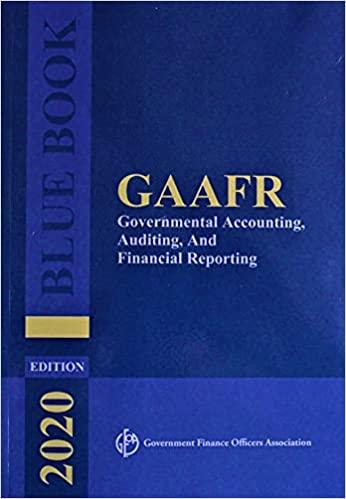Question
Problem 22-7 You have been assigned to examine the financial statements of Sunland Company for the year ended December 31, 2017. You discover the following
Problem 22-7
You have been assigned to examine the financial statements of Sunland Company for the year ended December 31, 2017. You discover the following situations.
1. Depreciation of $3,000 for 2017 on delivery vehicles was not recorded. 2. The physical inventory count on December 31, 2016, improperly excluded merchandise costing $17,900 that had been temporarily stored in a public warehouse. Sunland uses a periodic inventory system. 3. A collection of $5,400 on account from a customer received on December 31, 2017, was not recorded until January 2, 2018. 4. In 2017, the company sold for $3,300 fully depreciated equipment that originally cost $27,300. The company credited the proceeds from the sale to the Equipment account. 5. During November 2017, a competitor company filed a patent-infringement suit against Sunland claiming damages of $201,600. The companys legal counsel has indicated that an unfavorable verdict is probable and a reasonable estimate of the courts award to the competitor is $122,500. The company has not reflected or disclosed this situation in the financial statements. 6. Sunland has a portfolio of trading investments. No entry has been made to adjust to market. Information on cost and fair value is as follows.
Cost Fair Value December 31, 2016 $102,900 $102,900 December 31, 2017 $90,800 $89,000
7. At December 31, 2017, an analysis of payroll information shows accrued salaries of $11,900. The Salaries and Wages Payable account had a balance of $15,800 at December 31, 2017, which was unchanged from its balance at December 31, 2016. 8. A large piece of equipment was purchased on January 3, 2017, for $36,200 and was charged to Maintenance and Repairs Expense. The equipment is estimated to have a service life of 8 years and no residual value. Sunland normally uses the straight-line depreciation method for this type of equipment. 9. A $12,000 insurance premium paid on July 1, 2016, for a policy that expires on June 30, 2019, was charged to insurance expense. 10. A trademark was acquired at the beginning of 2016 for $45,500. No amortization has been recorded since its acquisition. The maximum allowable amortization period is 10 years.
Assume the trial balance has been prepared but the books have not been closed for 2017. Assuming all amounts are material, prepare 10 journal entries showing the adjustments that are required. (Ignore income tax considerations.) (Credit account titles are automatically indented when amount is entered. Do not indent manually. If no entry is required, select "No Entry" for the account titles and enter 0 for the amounts.)
Step by Step Solution
There are 3 Steps involved in it
Step: 1

Get Instant Access to Expert-Tailored Solutions
See step-by-step solutions with expert insights and AI powered tools for academic success
Step: 2

Step: 3

Ace Your Homework with AI
Get the answers you need in no time with our AI-driven, step-by-step assistance
Get Started


